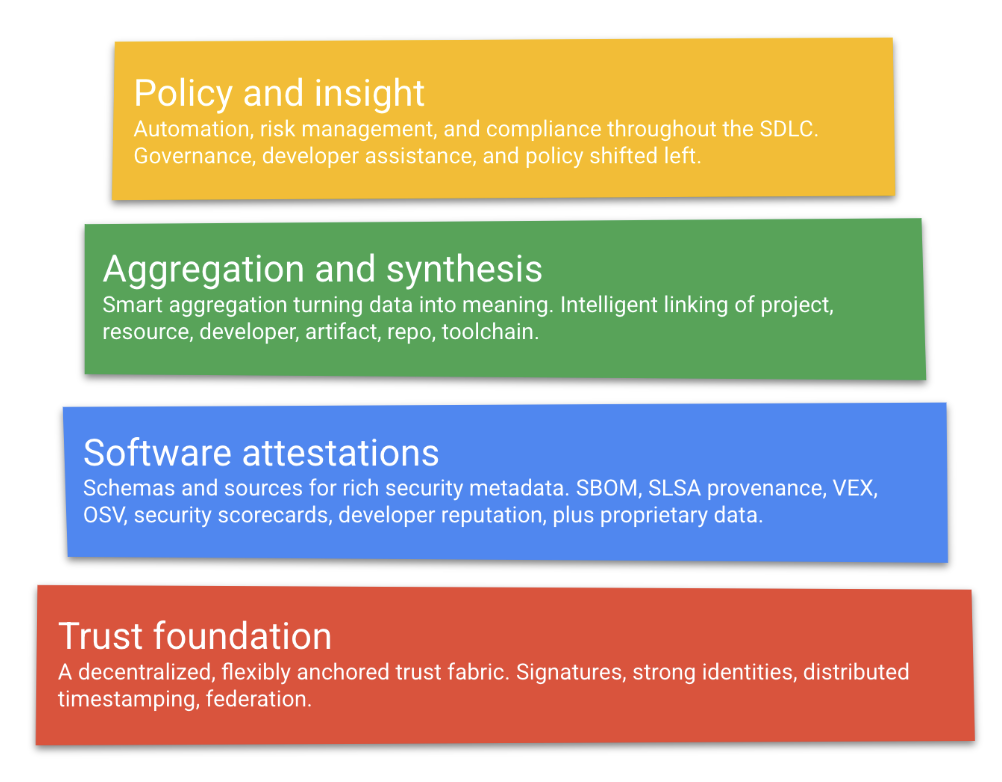Note: GUAC is under active development - if you are interested in contributing, please look at contributor guide and the "express interest" issue
Graph for Understanding Artifact Composition (GUAC) aggregates software security metadata into a high fidelity graph database—normalizing entity identities and mapping standard relationships between them. Querying this graph can drive higher-level organizational outcomes such as audit, policy, risk management, and even developer assistance.
Conceptually, GUAC occupies the “aggregation and synthesis” layer of the software supply chain transparency logical model:
A few examples of questions answered by GUAC include:
Refer to the Setup + Demo document to learn how to prepare your environment and try GUAC out!
Here is an overview of the architecture of GUAC:
Note that GUAC uses software identifiers standards to help link metadata together. However, these identifiers are not always available and heuristics need to be used to link them. Therefore, there may be unhandled edge cases and errors occuring when ingesting data. We appreciate if a comment can be made on the metadata quality issue.
We encourage discussions to be done on github issues. We also have a public slack channel on the OpenSSF slack.
For future updates, announcements, and community meetings, join our GUAC community google group.
We host monthly community calls available for all to join (Calendar Invite).
For security issues or code of conduct concerns, an e-mail should be sent to [email protected].
Information about governance can be found here.



